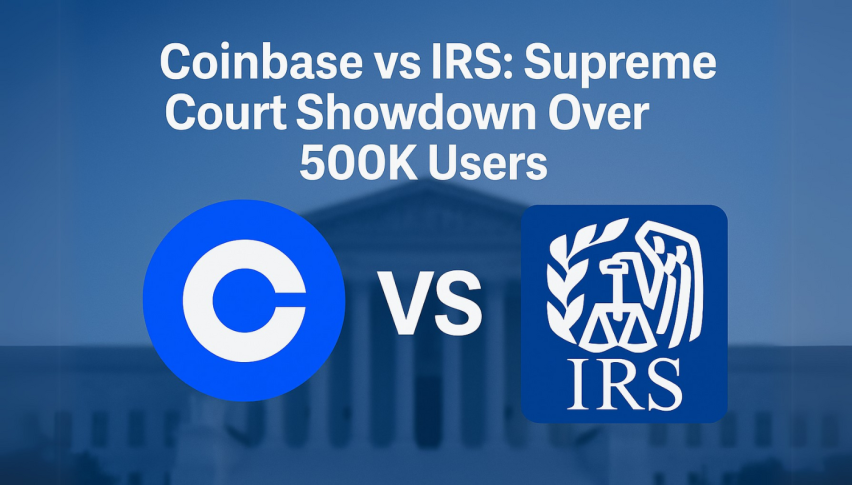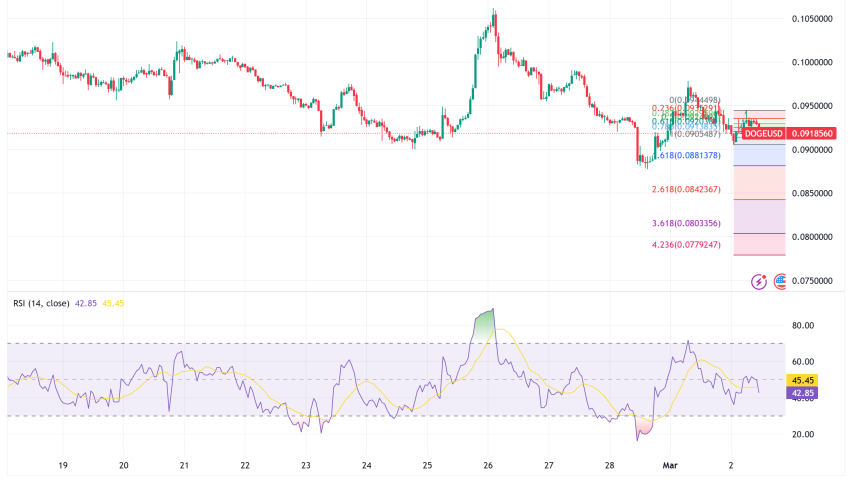Coinbase vs IRS: Supreme Court Showdown Over 500K Users
Coinbase has escalated the fight for user privacy by filing a Supreme Court brief on April 30 in support of Harper v. O’Donnell.

Quick overview
- Coinbase has filed a Supreme Court brief supporting Harper v. O'Donnell, challenging the IRS's use of John Doe summonses for mass data collection on crypto users.
- The case argues that the IRS's 2017 request for user data violates the Fourth Amendment by allowing unreasonable searches without individual suspicion.
- Coinbase contends that outdated legal doctrines do not apply to modern digital privacy, emphasizing the need for updated protections in the digital age.
- The outcome of this case could set a significant precedent for digital privacy rights and government surveillance practices across all online platforms.
Coinbase has escalated the fight for user privacy by filing a Supreme Court brief on April 30 in support of Harper v. O’Donnell. The case challenges the IRS’s use of John Doe summonses, which Coinbase says allows for mass data collection on over 500,000 crypto users with no individual suspicion.
At the heart of the matter is a 2017 IRS request that forced Coinbase to turn over years of user data—including names, addresses, account activity, and transaction history—under a legal mechanism that doesn’t require identifying specific individuals. Coinbase argues this violates the Fourth Amendment, which protects against unreasonable searches and seizures.
Coinbase Chief Legal Officer Paul Grewal said:
“You should have the same right to privacy for your inbox or Coinbase account as you do for your mailbox.”
Why the Case Will Change Digital Privacy Law
Coinbase’s brief says current surveillance methods rely on outdated legal doctrine. The IRS is using the third-party doctrine, a concept from the 1970s that says individuals lose privacy rights over information shared with external services like banks or internet providers.
But Coinbase says this logic doesn’t apply in today’s digital world—especially on public blockchains, where once an identity is linked to a wallet, every past and future transaction is traceable in real time.
Key points from Coinbase:
-
Blockchain transparency + identity = permanent surveillance
-
IRS access to crypto data is like access to all digital services
-
Surveillance rules based on old tech no longer apply
Coinbase references the landmark Carpenter v. United States (2018) decision, where the Supreme Court ruled police need a warrant to access historical cellphone location data. The decision recognized that digital data needs modern legal protections, even when shared with third parties.
More Than Taxes: A Test Case for Digital Freedom
Coinbase says this isn’t about dodging taxes—it’s about protecting constitutional rights in the digital age. The 2017 IRS summons targeted millions of transactions of users with no allegations of wrongdoing, which Coinbase calls a huge overreach.
Points from Coinbase’s position:
-
500,000+ users affected by the IRS’s blanket data request
-
Sets precedent for future surveillance of online accounts
-
Digital privacy rights must evolve with technologyThe company supports tax enforcement but says blanket data grabs go too far. Coinbase is asking the Supreme Court to set boundaries on government access to digital data, so that it matches how we live and transact today.
This case may set a big precedent not just for crypto but for the entire digital world where privacy, surveillance and personal freedom intersect.
- Check out our free forex signals
- Follow the top economic events on FX Leaders economic calendar
- Trade better, discover more Forex Trading Strategies
- Open a FREE Trading Account
- Read our latest reviews on: Avatrade, Exness, HFM and XM


